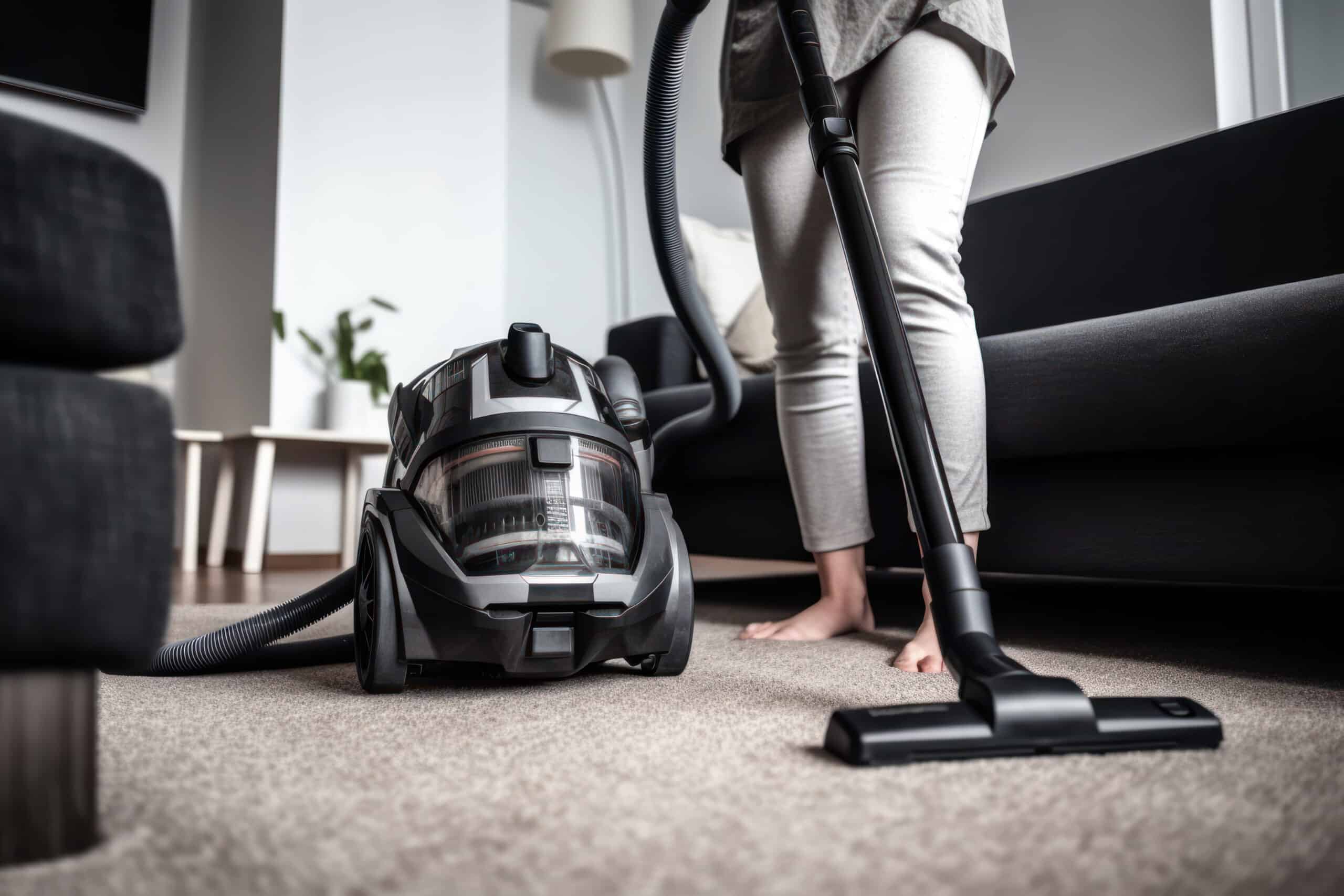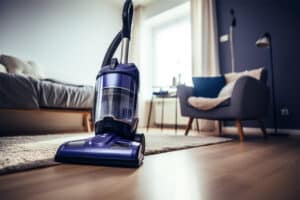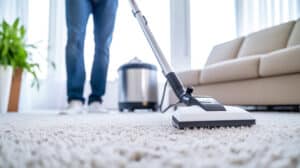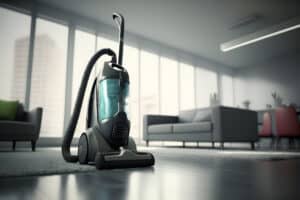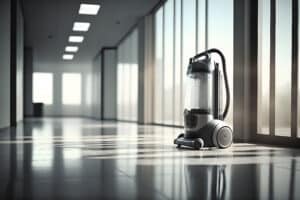What Is a Good Suction Power for a Vacuum Cleaner?
Key Takeaways
- The ideal suction power for upright or canister vacuum cleaners is generally considered to be in the range of 100 to 200 Air Watt (AW).
- Robotic vacuum cleaners typically require a suction power in the range of 500 to 2000 Pascal (Pa) for routine maintenance cleaning.
- Factors that can impact suction power and overall cleaning effectiveness include motor strength, airflow design, filtration system, seal and hose quality, and the cleanliness of filters and brushes.
When it comes to choosing a vacuum cleaner, one of the most important factors to consider is suction power. But what exactly is a good suction power for a vacuum cleaner? Let’s dive into the details and explore the ideal suction power for different types of vacuum cleaners, how to measure suction power, and the factors that can impact a vacuum’s cleaning effectiveness.
Ideal Suction Power for Different Types of Vacuum Cleaners
The ideal suction power for a vacuum cleaner can vary depending on the type of flooring and your specific cleaning needs. Different surfaces may require different suction power levels to effectively remove dirt, debris, and pet hair. Let’s take a closer look at the recommended suction power for different types of vacuum cleaners:
Upright or Canister Vacuum Cleaners
For upright or canister vacuum cleaners, a suction power in the range of 100 to 200 Air Watt (AW) is generally considered ideal. This level of suction power is usually sufficient to effectively clean a variety of surfaces, including hard floors and carpets.
Robotic Vacuum Cleaners
Robotic vacuum cleaners have their own unique requirements when it comes to suction power. Generally, a suction power in the range of 500 to 2000 Pascal (Pa) is considered adequate for routine maintenance cleaning. Robotic vacuums rely more on their navigation capabilities and overall cleaning efficiency rather than raw suction power.
Factors Affecting Suction Power
Several factors can impact a vacuum cleaner’s suction power and overall cleaning effectiveness. Let’s explore these factors:
Motor Strength
The motor strength of a vacuum cleaner plays a crucial role in determining its suction power. A more powerful motor can generate greater airflow, resulting in stronger suction and better cleaning performance.
Airflow Design
The airflow design of a vacuum cleaner affects how efficiently it can pick up dirt and debris. A well-designed airflow system minimizes airflow restrictions and maximizes suction power.
Filtration System
A high-quality filtration system is essential for maintaining suction power. A clogged or dirty filter can restrict airflow and decrease the effectiveness of the vacuum cleaner.
Seal and Hose Quality
A vacuum cleaner with a tight seal and high-quality hose ensures that there is no loss of suction power during operation. Proper seals and hoses prevent air leaks and maintain optimal suction.
Dust Canister or Bag Design
The design of the dust canister or bag can also impact suction power. A well-designed canister or bag allows for efficient airflow and easy disposal of collected dirt and debris.
Cleanliness of Filters and Brushes
Regularly cleaning and maintaining the filters and brushes of a vacuum cleaner is crucial for optimal suction power. Clogged or dirty filters and brushes can reduce suction and hinder cleaning performance.
Measuring Suction Power
If you want to measure the suction power of your vacuum cleaner or compare it to other models, you can use a tool called a “Vacuum Cleaner Suction Gauge, Water Lift Gauge.” Here’s how you can measure suction power:
- Cut a hole in a clear plastic container lid and tape a piece of paper over it.
- Attach the container upside down to the vacuum cleaner’s nozzle.
- Turn on the vacuum cleaner and time how long it takes for the paper to detach from the lid and get sucked into the vacuum.
- Repeat the process two more times for accuracy and average the three readings.
By following these steps, you can measure the suction power of your vacuum cleaner and compare it to other models.
Conclusion
When it comes to determining the ideal suction power for a vacuum cleaner, various factors come into play. The type of surface being cleaned, cleaning needs, and specific requirements all play a role in determining the appropriate suction power. It’s important to consider factors such as motor strength, airflow design, filtration system, seal and hose quality, and the cleanliness of filters and brushes.
Ultimately, the ideal suction power for a vacuum cleaner will depend on your individual needs and preferences. Take into account the type of flooring and surfaces you need to clean, any specific cleaning requirements (such as pet hair or heavy dirt), any allergies or asthma concerns, and the noise level you prefer.
Related Websites:
FAQs:
Q: What is a good suction power for a vacuum cleaner?
A good suction power for a vacuum cleaner depends on your cleaning needs and environment. For general household cleaning, a suction power of at least 200-300 air watts is recommended. However, if you have pets, thick carpets, or frequently deal with debris and dirt, a higher suction power of 400-500 air watts may be more suitable.
Q: How does the filtration system affect suction power?
The filtration system plays a crucial role in suction power. A clogged or inefficient filtration system can restrict airflow, reducing suction power. High-quality filtration systems, such as HEPA filters, not only improve air quality but also maintain optimal suction power by preventing clogs and maintaining consistent airflow.
Q: What is the relationship between motor power and suction power?
Motor power directly affects suction power. A vacuum cleaner with a powerful motor generates stronger airflow, resulting in higher suction power. However, suction power is not solely determined by motor power; factors like airflow design and filtration system efficiency also play significant roles in determining the overall performance of a vacuum cleaner.
Q: How do different cleaning needs affect suction power requirements?
Different cleaning needs require varying levels of suction power. For regular household cleaning on typical flooring, a moderate suction power of 200-300 air watts is usually sufficient. However, if you have pets, thick carpets, or deal with heavy debris, a higher suction power of 400-500 air watts may be necessary to effectively clean and maintain your space.
Q: Are there any industry standards or recommendations for suction power in vacuum cleaners?
While there are no specific universal standards for suction power, industry experts generally recommend a minimum suction power of 200-300 air watts for standard cleaning needs. However, it’s important to consider your specific requirements and consult product reviews, as some manufacturers may offer their own recommendations based on their vacuum cleaner models and technology.

